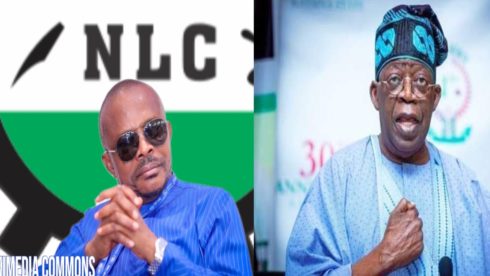The Presidency has categorically denied reaching an agreement with the Nigeria Labor Congress (NLC) on the recent fuel price hike. This clarification comes amidst rumors suggesting that President Bola Ahmed Tinubu had entered into a pact with the NLC to increase fuel prices. The Presidency has emphasized that no such agreement was made, and the NLC’s claims are entirely unfounded.
This denial is a significant development in the ongoing fuel price hike saga. The Presidency’s stance indicates that the NLC’s assertions were mere speculation, and no concrete agreement was reached. This clarification is expected to calm tensions and provide clarity on the government’s position regarding the fuel price increase.
Fuel Price Hike: A Necessary Evil?
The recent fuel price hike has sparked intense debate, with many Nigerians questioning the government’s decision. While the government maintains that the increase is necessary to reflect current market realities, many citizens are struggling to cope with the added financial burden. The Presidency’s denial of an agreement with the NLC adds another layer of complexity to the issue, highlighting the need for transparency and clear communication.
As the debate rages on, it is essential to consider the broader implications of the fuel price hike. Will it lead to increased economic activity, or will it further exacerbate the suffering of ordinary Nigerians? The government must provide clear answers to these questions and demonstrate empathy towards those affected by the price increase.
NLC’s Reaction: A Mixed Bag
The NLC has reacted to the Presidency’s denial with a mix of surprise and disappointment. While some union leaders have expressed understanding, others have vehemently disputed the Presidency’s claims. This division within the NLC ranks highlights the complexity of the issue and the need for a unified stance.
As the NLC continues to navigate this challenging situation, it is crucial for the union to maintain a clear and consistent message. The NLC must balance its advocacy for workers’ rights with the need to engage constructively with the government. By doing so, the union can effectively represent the interests of its members and contribute to finding a solution to the fuel price hike conundrum.
Government’s Next Steps: A Wait-and-See Approach
The government’s next steps regarding the fuel price hike are uncertain, leaving many Nigerians in a state of limbo. Will the government reconsider the price increase, or will it maintain its current stance? The Presidency’s denial of an agreement with the NLC has added to the uncertainty, making it challenging to predict the government’s future actions.
As the situation unfolds, Nigerians will be watching closely to see how the government responds to the ongoing backlash. The government must be proactive in addressing the concerns of its citizens and providing clear guidance on its plans to mitigate the effects of the fuel price hike.
Public Outcry: A Call to Action
The public outcry against the fuel price hike continues to grow, with many Nigerians demanding a reversal of the decision. This widespread discontent highlights the need for the government to engage with its citizens and address their concerns. The Presidency’s denial of an agreement with the NLC has only added fuel to the fire, emphasizing the need for constructive dialogue.
As the public outcry persists, it is essential for the government to listen to the concerns of its citizens and respond accordingly. The government must demonstrate empathy and understanding, working towards finding a solution that balances economic realities with the needs of its people.
Economic Implications: A Delicate Balance
The fuel price hike has significant economic implications, affecting various sectors and stakeholders. The government must strike a delicate balance between reflecting market realities and protecting the interests of its citizens. The Presidency’s denial of an agreement with the NLC underscores the complexity of this challenge.
As the government navigates this economic tightrope, it is crucial to consider the long-term implications of the fuel price hike. Will it lead to increased economic activity, or will it stifle growth and exacerbate poverty? The government must carefully weigh these factors to ensure that its decisions promote sustainable economic development.
Table of Contents
Discover more from OGM News NG
Subscribe to get the latest posts sent to your email.














